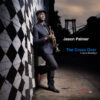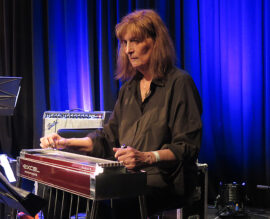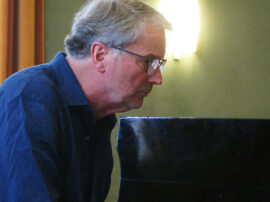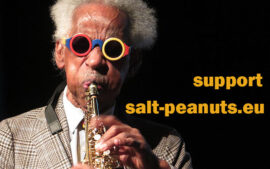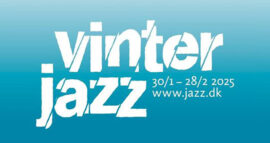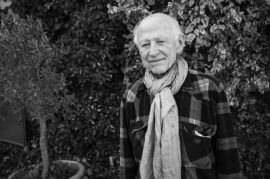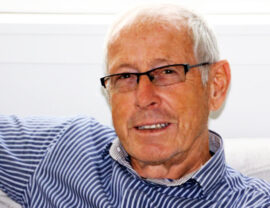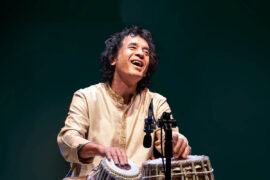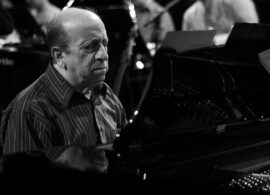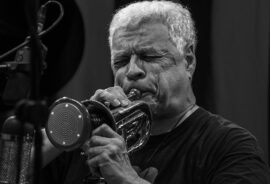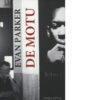
In this short bilingual book – in French and English – innovative British sax player Evan Parker decipher the process of solo free improvisation and shares insights about shaping developing such improvisations as coherent compositions. This short book is based on a lecture that Parker has given in May 1992, and a an improvised piece – «De Motu» – originally commissioned by the Zaal of Unie in Rotterdam and dedicated «with affection» to the memory German double bass player Buschi Niebergall, «a great improviser and philosopher», who has away on January 1990.
Parker sees improvisation as a compositional method, open to the final «tuning» and adjustment to the specific circumstances of performance and always as a challenge of filling the acoustic space with sounds that have the power «to point at a dimension beyond the mundane, beyond the known, to allude to the unknowable, the other…» He claims that from an instrumentalist point of view, all improvisations are somehow «prepared», given the needed knowledge of the instrument and improviser own extended techniques – circular breathing in his own case. Parker details his own influences, from Roland Kirk, through Steve Lacy and John Coltrane, until realizing that the saxophone «can just as well be seen as a closed tube that can be opened in various ways as on open tube that can be closed in various ways».
He adds that the «total developing awareness of the instrument as a channel for the imagination but at the same time as a shaper and perhaps limiter of the imagination». And compares his own preparations for solo improvisations to a «painter’s sketchbook were fragments of might become the final work are treated in isolation from one another». These fragments are only illustrative, and often Parker messes with them, stressing the obvious – there are no «wrong notes» in free improvisation.
Wise man. One of the greatest free improvisers.
Eyal Harauveni







